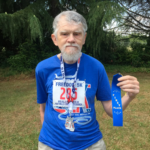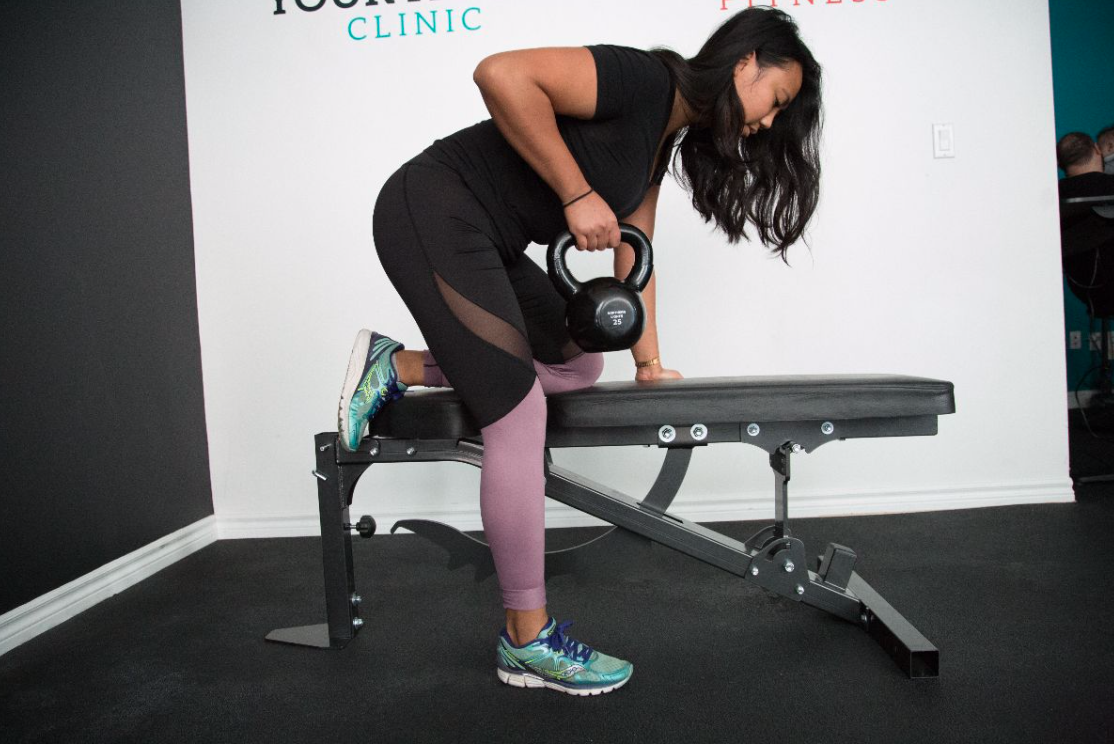 The best exercise regimen for a person depends on their goals. What do they want to achieve?
The best exercise regimen for a person depends on their goals. What do they want to achieve?
- Do they want to stay as active as possible for as long as possible?
- Do they want to set an age-group record for the 10-kilometer run?
- Do they want to set an age-group record for the bench press?
- Do they want to be able to catch their granddaughter before she runs into the street chasing a ball?
- Do they want to lessen the chance that they will acquire a cardiovascular disease (CVD)?
- Do they want to lessen the chance that they will die prematurely?
Different objectives dictate different exercise programs.
 When people hit about age 45, they start to become aware of their own mortality. At that point they may start prioritizing the life they are living right now, and then take steps (literally as well as figuratively) to stay as active as possible for as long as possible.
When people hit about age 45, they start to become aware of their own mortality. At that point they may start prioritizing the life they are living right now, and then take steps (literally as well as figuratively) to stay as active as possible for as long as possible.
- To set an age group record, or at least an age group PR (personal record) for the 10-K run, high intensity interval training (HIIT) may be the ticket. That or runs of several miles at constant speed.
- To set an age group PR at the bench press, hit the gym several times a week and do bench presses of progressively greater weights, as your strength increases.
- To catch a small, imperiled granddaughter, work on sprints, interspersed with long rests
The granddaughter case is not a fantasy. I make daily runs back and forth on a street that sees moderate traffic. One day a few months ago I happened to be running by a neighbor’s yard when I saw the neighbor’s pre-school daughter running away from her grandfather, directly toward the road I was running on. The grandfather had no hope of catching her before she ran into the street. I stopped and stood right in front of her, freezing her with my gaze. This gave her grandfather the chance to jog up and lift her into his arms. Situation saved. Small children do die, running into the street. Care givers need to be able to rise to the occasion and prevent the unthinkable.
Perhaps you don’t care about setting personal records. Maybe you don’t even have a small granddaughter. Maybe all you want is to be able to live long and prosper, in good health. Given that simple goal, what should you do? A study was recently conducted over a ten-year period of men and women aged 45+. They were tested at the beginning and the end of the study for the amount of skeletal muscle they possessed, and how that corelated with the incidence of cardiovascular disease (CVD) over the course of the study and with all-cause mortality.
The participants were binned into three groups, those with the least amount of skeletal muscle, a medium amount, and the most. Confounding variables, such as smoking, diet, physical activity, obesity, hypertension, and others were accounted for. The people who maintained the most skeletal muscle had the least CVD and the lowest all-cause mortality, even though there were more smokers in that group than in either of the ones with less skeletal muscle.
What should a person like me, who is 45 years old or older (OK, I’m older than 45), take away from this study. Skeletal muscle declines progressively as we age. We can slow that process by being physically active. Running is good. It builds up leg muscles, as well as muscles in the arms and chest. Resistance training is also good. Doing those bench presses, as well as working other muscle groups will help to slow the decline in skeletal muscle as you age. There are multiple rewards for all this hard work. For one thing, it feels good to be out running or walking, particularly if you can do it in natural surroundings. For another, you may be able to delay or even eliminate completely the onset of CVD. You may even be able to avoid whatever other slings and arrows outrageous fortune might cast at you. Maintaining skeletal muscle, while also exercising your cardiovascular system, just might help you to live long and prosper.
BIO:
Allen G. Taylor is a 40-year veteran of the computer industry and the author of over 40 books, including Develop Microsoft HoloLens Apps Now, Get Fit with Apple Watch, Cruise for Free, SQL For Dummies, 9thEdition, Crystal Reports 2008 For Dummies, Database Development For Dummies, Access Power Programming with VBA, and SQL All-In-One For Dummies, Third Edition. He lectures internationally on astronomy, databases, innovation, and entrepreneurship. He also teaches database development and Crystal Reports through a leading online education provider. For the latest news on Allen’s activities, check out his blog at wwwallengtaylor.com or contact him at allen.taylor@ieee.org.